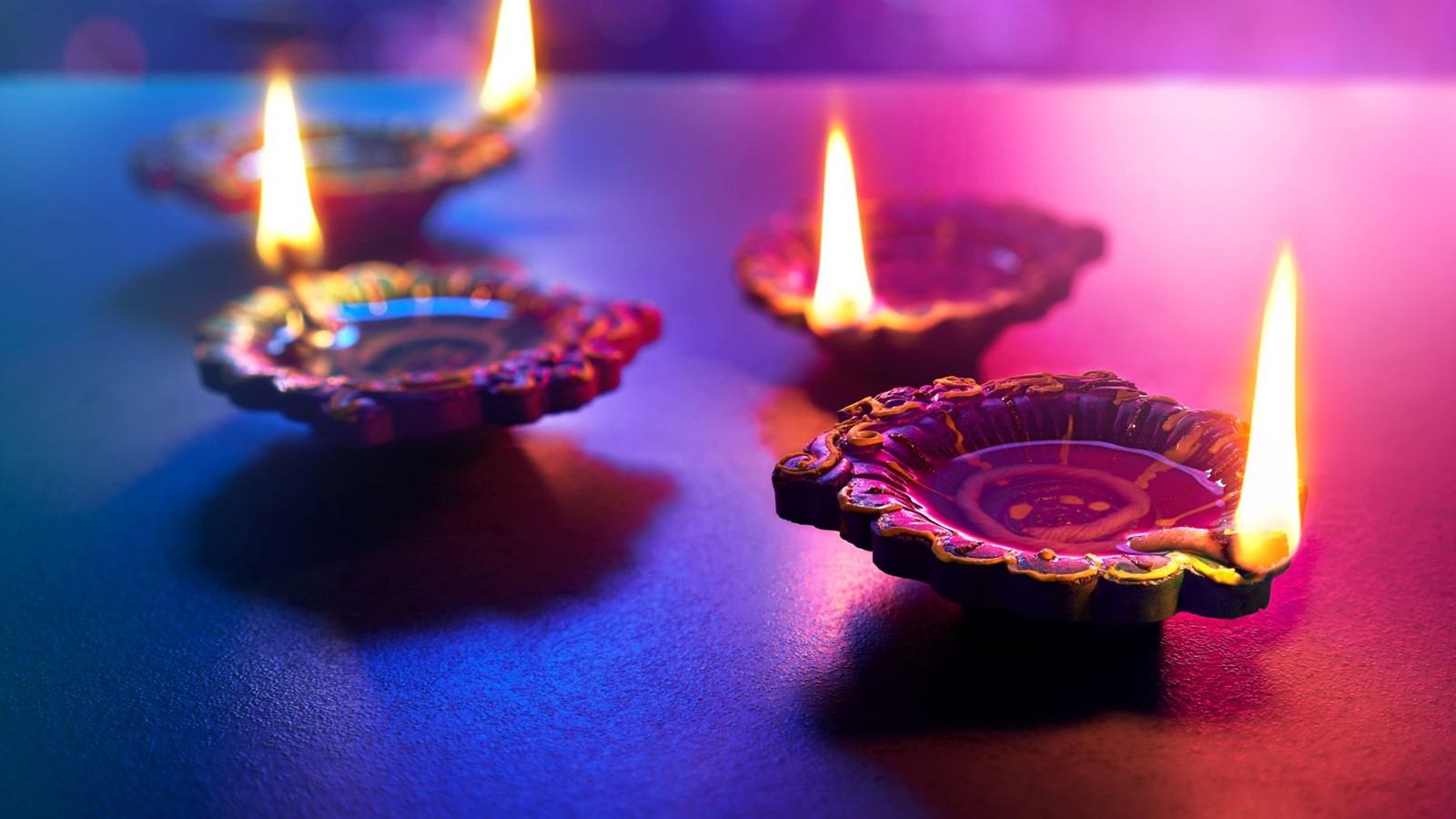This Saturday, 14 November is Diwali1, the festival of lights in the Hindu calendar that in the words of Wikipedia symbolises the spiritual "victory of light over darkness, good over evil, and knowledge over ignorance". This festival has always been a special time for me and my family and I have been mulling over why, when we can’t be together to share our usual celebrations, it feels even more essential for me to mark the day this year.
As a psychotherapist and a yoga therapist, at the heart of my work lies the issue of awareness of self. Described as the Light of Consciousness in the Vedanta2, the symbolism of Light over Darkness historically transcends into all major spiritual traditions, philosophies and literature. And of course this ‘light’ or awareness lies at the heart of counselling and psychotherapy. Freud’s theories and exploration of the unconscious and Jung’s metaphor of shadow and light work contain this explicitly.
But no matter what model or methodology is applied, the journey of therapy is similar in intent. Whether it manifests in an exploration of the impact of childhood experiences on interpersonal and intrapersonal dynamics, on facilitating the emergence of compassion to reduce shame and criticism, or on addressing issues of addiction and self harm ensuing from trauma, we are all in some way engaged in assisting our clients to gain awareness and ‘bring to light’ unhelpful or outdated aspects of the self.
Inevitably when we embark on this journey, we will meet resistance. Just like the protagonists depicted in classic heroic tales such as the Odyssey or Lord of the Rings, we witness our clients coming up against their personal demons time and time again, and subsequently being faced with a choice. Namely, do I choose to let the demons be whilst I reside in the shadows, or do I engage in a process likely involving conflict and suffering to emerge ‘enlightened’ into a more integrated and healed version of myself? Indeed, this metaphor lies at the heart of the Bhagavad Gita, the ancient primary text on Yoga where Krishna counsels Arjuna on whether or not to go into battle, this being a metaphor for humanity to pursue a path that leads to peace of mind. A hero’s journey if ever there was one.
As such it could be said that in our profession, what we bear witness to on an individual level is a microcosmic reflection of what takes place on an evolutionary scale in society at large. An expansion or contraction of growth and awareness; a movement towards an age of ‘enlightenment’ or a withdrawal back into the ‘Dark Ages.’
This year more than any other in my living memory we have seen a challenging call to shine a light and raise our awareness. The Covid-19 pandemic, the global rise of the BLM movement, the crisis in bio-diversity not to mention national and international politics are all, metaphorically speaking, symptoms crying out for our attention. Because we are not single entities living in isolation but we co-exist with others against a socio political economic and cultural backdrop that directly impacts on our lives and our ontological sense of self.
Similar to a client’s process of resistance, when we bring these issues to light we will come against societal defences. We will encounter those who do not wish to see or believe that racism is a modern day live issue in which we are all complicit, who deny that Covid-19 is a personal threat to all and those who choose to turn a blind eye to the brutality that we inflict on our planet every day. This year we have witnessed events that clearly highlight how we are all connected, how we all co-exist on this earth with our differences and our similarities.
So this is why I will be lighting candles galore in my home on Saturday. Not just to celebrate Diwali and welcome Laxmi into my home but because if we as therapists cannot shine a light with honesty and compassion on all aspects of ourselves, if we refuse to see, own and work through our biases, prejudices and fears, how can we truly help our clients find their way through their own personal darkness?
References
1. The word Diwali means ‘row or series of lights’ In some part of India the ritual of Laxmi puja is held whereby a candle is placed in the windows and at the front door of a home to welcome Laxmi, the goddess of prosperity and wealth into the home for the coming year
2. The school of Indian philosophy from which both the philosophy of Hinduism and Yoga derive
Read more...

Facing profound existential questions
Neela Masani hopes we can all emerge from this with a greater sense of who we are and of what really matters in life.

My first year on the Board of Trustees
Trustee Neela Masani explains why she joined the BACP Board and encourages other members to apply

Blogs and vlogs 2020
News, views and updates from our staff, members and counselling clients
Views expressed in this article are the views of the writer and not necessarily the views of BACP. Publication does not imply endorsement of the writer’s views. Reasonable care has been taken to avoid errors but no liability will be accepted for any errors that may occur.
